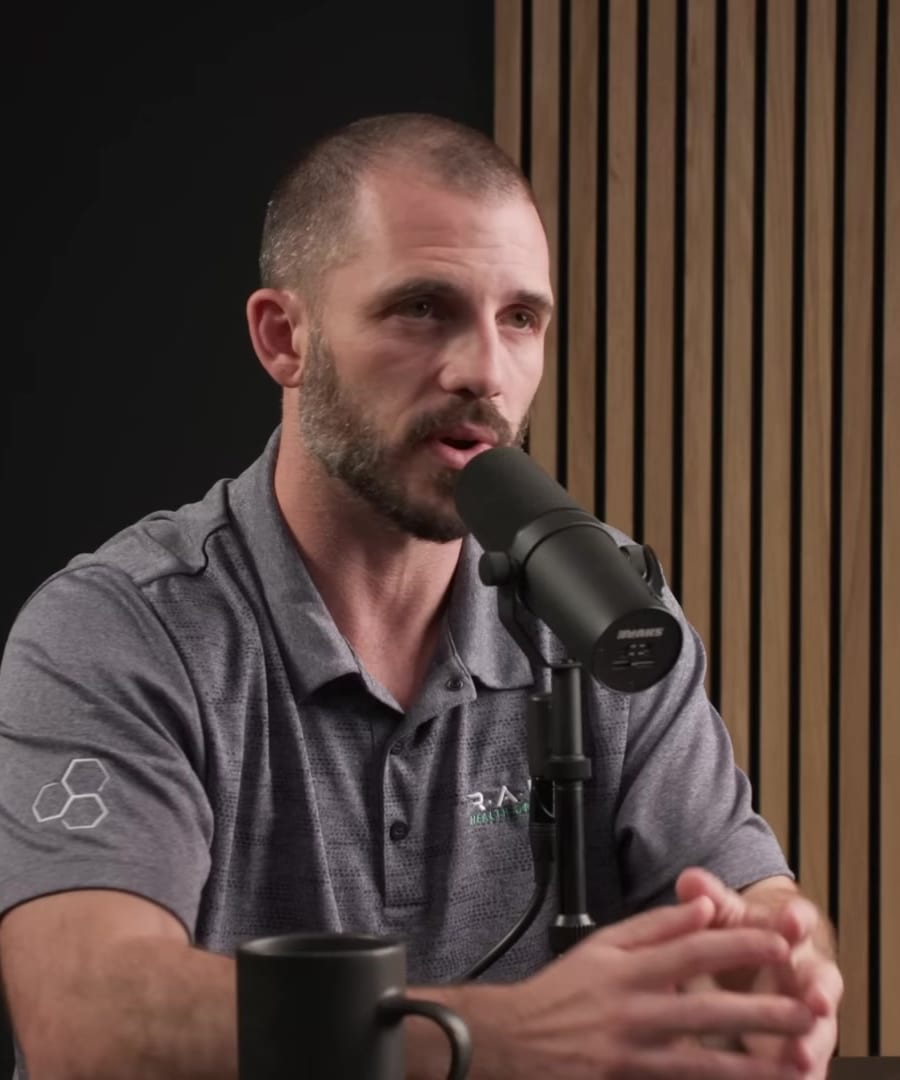What are essential nutrients that many diets lack?
Sources:
Many diets lack essential nutrients that are critical for various aspects of health. Here are some commonly lacking nutrients:
-
Omega-3 Fatty Acids: Omega-3s, particularly EPA and DHA, are crucial for brain and body health, improving focus, cognitive ability, and mood. They are typically found in fatty fish, and supplementation might be necessary for those who don't consume enough through diet alone 1.
-
Vitamin A: Although not extremely common, vitamin A deficiencies can affect vision. This is especially important for eye health, where vitamin A plays a role in converting light into signals that the brain can process. Carotenoids like beta-carotene are essential for producing vitamin A 2.
-
Essential Amino Acids: Amino acids like tryptophan, threonine, and leucine are vital for various metabolic functions. These amino acids are necessary for serotonin production, gut health, and muscle maintenance. Ensuring sufficient intake through diet or supplements is essential for overall health 3.
-
Glutamine: This amino acid can bolster the immune system and reduce sugar cravings. It is found in foods like cottage cheese and can be supplemented if necessary. However, caution is advised for individuals with cancer due to its effects on tumor growth 4.
These nutrients play significant roles in maintaining overall health and addressing specific deficiencies can lead to better physical and cognitive performance.
RELATED QUESTIONS-
What supplements can help with these deficiencies?
Sources:
To address deficiencies in omega-3 fatty acids, vitamin A, essential amino acids, and glutamine, from the recommends several supplements:
-
Omega-3 Fatty Acids:
-
Glutamine:
- Glutamine can be beneficial for reducing sugar cravings, bolstering the immune system, and improving gut health. A recommended dose is several grams per day, often divided into multiple servings. It's crucial to start gradually to avoid gastric distress. However, caution is advised for individuals with cancer due to its possible effects on tumor growth 3 4 5.
-
Essential Amino Acids:
- Essential amino acids like tryptophan and leucine can be obtained from high-protein foods or supplements. These amino acids support serotonin production, gut health, muscle maintenance, and overall metabolic functions 6.
For maintaining adequate levels of these nutrients, a combined approach of dietary changes and supplementation can be highly effective. Always consult with a healthcare provider before starting any new supplement regimen.
RELATED QUESTIONS-
Bioavailability of supplements
Sources:
Bioavailability is crucial when considering supplements, as it determines how well the body can absorb and utilize these nutrients. Here are key insights from clips:
-
General Bioavailability:
- emphasizes the importance of taking vitamins and minerals with food to enhance absorption, particularly for water-soluble vitamins like B vitamins and certain minerals like zinc and coenzyme Q10 1.
- High-concentration supplements offer nutrients that might be difficult to obtain through diet alone, but they should be used with caution due to potential counteractions between different supplements or high dosages leading to adverse effects 2.
-
Vitamin D:
- and discuss that while vitamin D deficiency is linked to several chronic diseases, simply supplementing might not resolve these issues if underlying inflammation is present because inflammation can hinder the conversion of vitamin D to its active form 3.
-
Melatonin:
- Variations in supplement quality can lead to inconsistent dosages, which affects bioavailability and efficacy. advises using third-party tested supplements to ensure consistency and safety 4.
-
Vitamin and Mineral Supplements:
- There’s a common misconception that taking high levels of vitamins only leads to "expensive urine." While it’s true that excess water-soluble vitamins (e.g., vitamin C) are excreted, many still don't get enough from food alone. It’s important to avoid exceedingly high dosages to prevent the risk of harmful accumulation, especially of fat-soluble vitamins 5.
These insights highlight the importance of considering bioavailability and quality when choosing supplements to ensure they are effective and safe. Always consult with a healthcare provider for individual advice.
RELATED QUESTIONS-
Quicksilver Scientific
Sources:
It appears that no direct discussions or mentions of "Quicksilver Scientific" were found in the clips retrieved. If you have any other questions or need information on a different topic, feel free to ask!
RELATED QUESTIONS
What are essential nutrients that many diets lack?
- RELATED QUESTIONS
What supplements can help with these deficiencies?
- RELATED QUESTIONS
Bioavailability of supplements
- RELATED QUESTIONS
Quicksilver Scientific
- RELATED QUESTIONS













